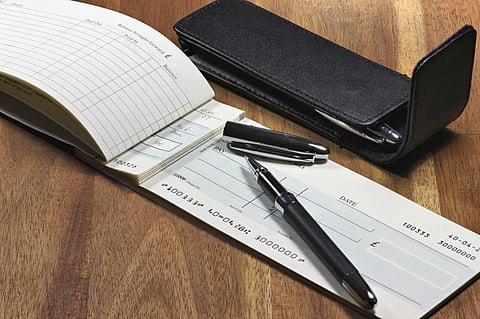Expired cheque? Here’s what the UAE law says about your rights
Understand your legal options when a cheque is too old to cash

Question: I have a cheque issued by someone for a large amount. The cheque is over four years old, and the bank is refusing to accept it because it is more than six months past its date of issuance. What is the appropriate legal procedure I should follow to claim my rights? Do I have the legal right to take immediate action to prevent the cheque issuer from leaving the country?
Answer: You do not have the legal right to take immediate action to ban the drawer because you have lost the opportunity to use the cheque as an execution document due to the lapse of more than two years from its due date and the failure to present the cheque to the bank within the required period.
According to Article 670 of the Commercial Transactions Law, claims to recover the cheque amount will not be accepted after two years have passed from the expiry of the presentment period. The following claims shall not be heard, upon denial and absence of a legitimate excuse:
Claims for recourse by the cheque bearer against the drawer, endorsers, and other obligors to pay the cheque value, if more than two years have passed since the expiry of the presentment period.
The legal action to be taken is to file a civil case against the drawer to recover the debt amount stated in the cheque, using the cheque only as evidence. This is based on Article 336 of the Civil Transactions Law, which states that claims arising from a beneficial act shall not be accepted after three years from the date the creditor became aware of their right of reversion, and in any case not later than 15 years from when the right arose.
The liability to prove your case lies with you. You may rely on an oath as well as any written documents between you and the drawer. The court will make its decision based on the documents submitted.
![Judgment holds local arm of international tech company legally responsible. [Illustrative image]](http://media.assettype.com/gulfnews%2F2026-03-02%2Fnh2vujch%2F202509173512728.jpg?w=320&auto=format%2Ccompress&fit=max)


